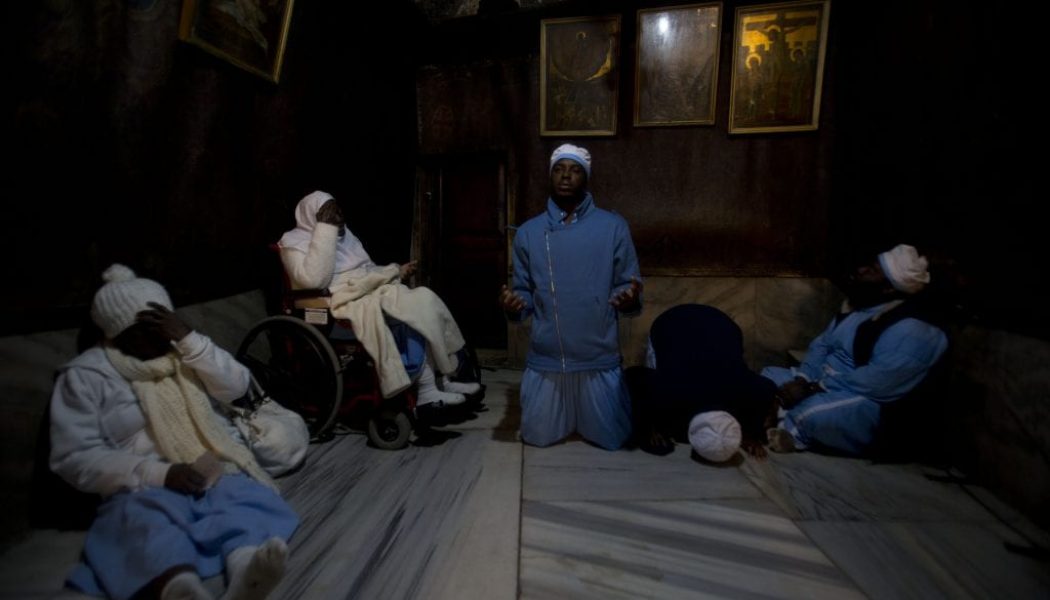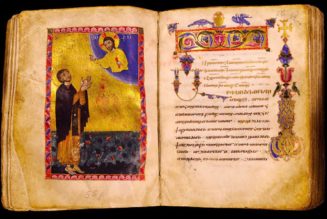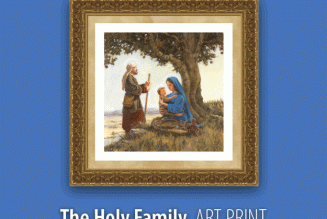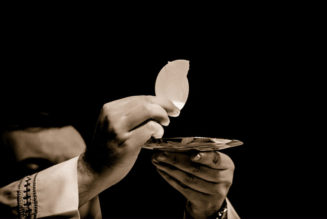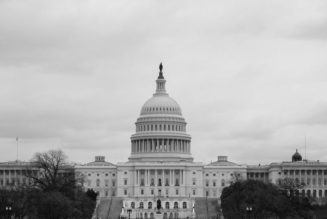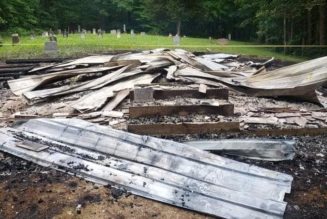
ROME – Suppose that, looking back at the close of a decade, there were two great narratives about a given group of people, one a tale of scandal and dark deeds coming to light, the other a story of suffering, victimization, and vulnerability.
Suppose, further, that the former storyline dominated global headlines, finishing as one of the most covered stories of the decade along with Donald Trump and climate change, while the other was second- or third-tier, with many average people not even aware it was happening. Suppose the scandal produced an Academy Award-winning movie that grossed $100 million worldwide, but the suffering had no movie, no anthem, no real pop culture footprint.
That group might well have a beef, and Christmas 2019 has offered another grisly reminder of the point.
On Dec. 26 – ironically enough, the feast of St. Stephen, Christianity’s first martyr – an ISIS-affiliated group in Nigeria released a video showing the decapitations of ten Christians and the shooting death of another. A masked man claimed the killings were in retaliation for the death of ISIS chief Abu Bakr al-Baghdadi by U.S. forces in Syria in October.
The executions were merely the latest act of barbarism committed by the Islamic State in West Africa Province, which over recent months has been expanding its attacks on Christians in Nigeria as well as aid workers and security personnel.
“Christians in all parts of Nigeria have been apprehensive for a long time, and they have seen themselves as clear targets of the endless acts of terrorism being witnessed in the country,” said Father Benjamin Achi, spokesman for the Diocese of Enugu in Nigeria, in comments to Crux.
“It’s very difficult not to think in that direction, in light of the scores of casualties Christians have recorded in various parts of the country since the rise of insurgency six years ago,” Achi said.
Every year over the past decade – and, in truth, for decades before this one – Christmas and Easter mark special periods of vulnerability for Christians around the world, as forces who wish to do Christians harm know that churches will be full, and that the symbolic value of striking Christians on one of the holiest days on their calendar is intense.
Last year, a coordinated series of bombings in Sri Lanka targeting three Christian churches and three luxury hotels left 259 people dead, including 45 children, and more than 500 people wounded. This year, it was once again Nigeria’s turn.
In general, anti-Christian violence and persecution dominated the 2010s for global Christianity, including Catholicism, every bit as much as the clerical sexual abuse scandals. In May, a report commissioned by the then-Foreign Minister of the UK, Jeremy Hunt, found that anti-Christian violence globally is at “near genocidal” levels, and concluded: “Evidence shows not only the geographic spread of anti-Christian persecution, but also its increasing severity.”
Experts debate exactly what counts as “religious persecution,” so estimates of the number of new Christian martyrs every year vary widely, from a low of around 8,000 to a high of 100,000. Even using that low-range figure, however, that’s at least 80,000 Christians killed for reasons linked to their faith throughout the 2010s.
One could make a good argument that aside from popes, perhaps the defining Catholic cleric of the past decade was French Father Jacques Hamel, an otherwise unexceptional 86-year-old priest assassinated in his parish in Saint-Étienne-du-Rouvray on July 26, 2016, while he celebrated Mass by two men professing allegiance to ISIS.
Though officially retired at the age of 75, Hamel had been allowed to continue serving in the parish as an associate pastor.
With a sainthood process underway, Hamel today stands in for countless Christians around the world who’ve lost their lives over the past decade, but without the fanfare that erupts when such an atrocity occurs in the heart of the West and its media establishment.
Hamel also offers the first clue as to why the human rights scourge of clerical sexual abuse has galvanized so much media attention and activism, while anti-Christian persecution hasn’t: In general, the latter is just too far away.
When someone’s brutally killed in the States, or in a major Western nation such as France, it’s a sensation. When it happens in Nigeria, or Sri Lanka, or Iraq and Syria, or anyplace else that’s off the collective radar screen, it’s a footnote.
Beyond that, there’s also the truth that anti-Christian persecution is politicized in a way that clerical sexual abuse no longer is.
It’s hard to remember now, but back in 2002 and 2003, when the Boston Globe began covering the abuse scandals, many on the Catholic right saw it as part of an anti-Catholic smear driven by the usual liberal, secular agenda, and tried to shoot the messenger. That reaction largely has faded, and today the cause of reform no longer breaks left v. right. (Though the diagnosis of what counts as reform, however, still often does.)
Yet anti-Christian persecution is still perceived in the West as mostly a “conservative” issue, which is breathtakingly ironic when one considers that most of the victims are poor, people of color, and often disproportionately female.
Why the case of Asia Bibi, for instance, an illiterate Catholic farmhand and mother of four who spent the 2010s on death row in Pakistan for the alleged crime of blasphemy before finally being freed and allowed to emigrate to Canada, did not become a towering feminist crusade, buoyed by the important feminist constituency within Catholicism, is inexplicable by anything other than the distortions of ideology.
If some on the Catholic right were slow to wake up to the clerical abuse crisis a decade and a half ago, many on the Catholic left today may need to make a similar examination of conscience about the sufferings of their sisters and brothers in the faith around the world.
However one accounts for the disparities in coverage and mobilization, they’re explanations but not excuses.
Global Christianity, Catholicism very much included, experienced two traumas over the last decade that are both global in scope and historic in their consequences. Perhaps our collective New Year’s, and New Decade’s, resolution might be to ensure that both receive the focus they merit.
Follow John Allen on Twitter: @JohnLAllenJr
Crux is dedicated to smart, wired and independent reporting on the Vatican and worldwide Catholic Church. That kind of reporting doesn’t come cheap, and we need your support. You can help Crux by giving a small amount monthly, or with a onetime gift. Please remember, Crux is a for-profit organization, so contributions are not tax-deductible.
